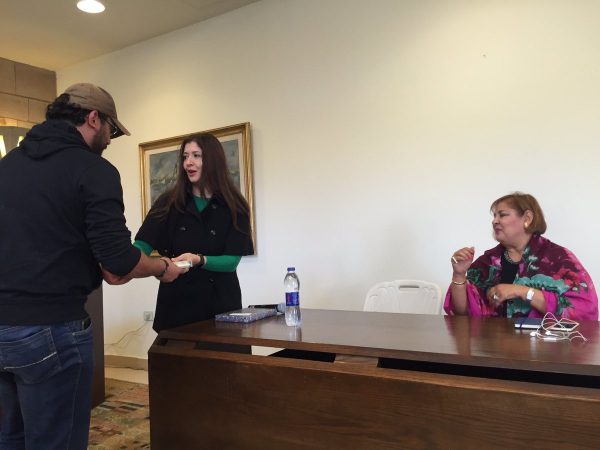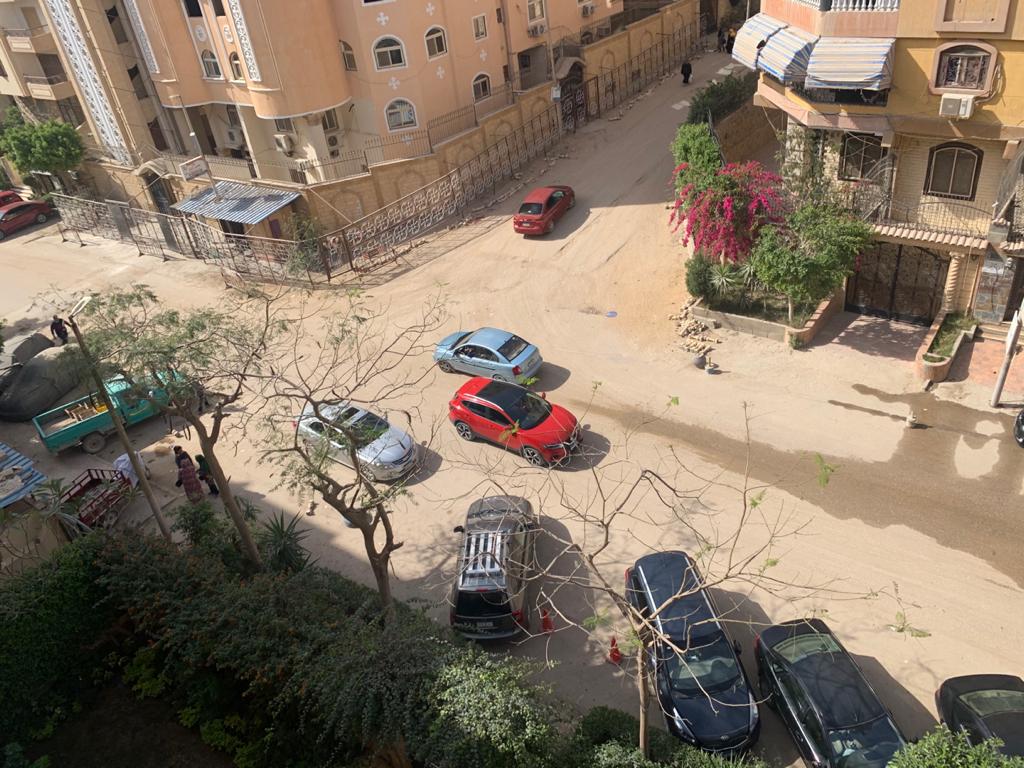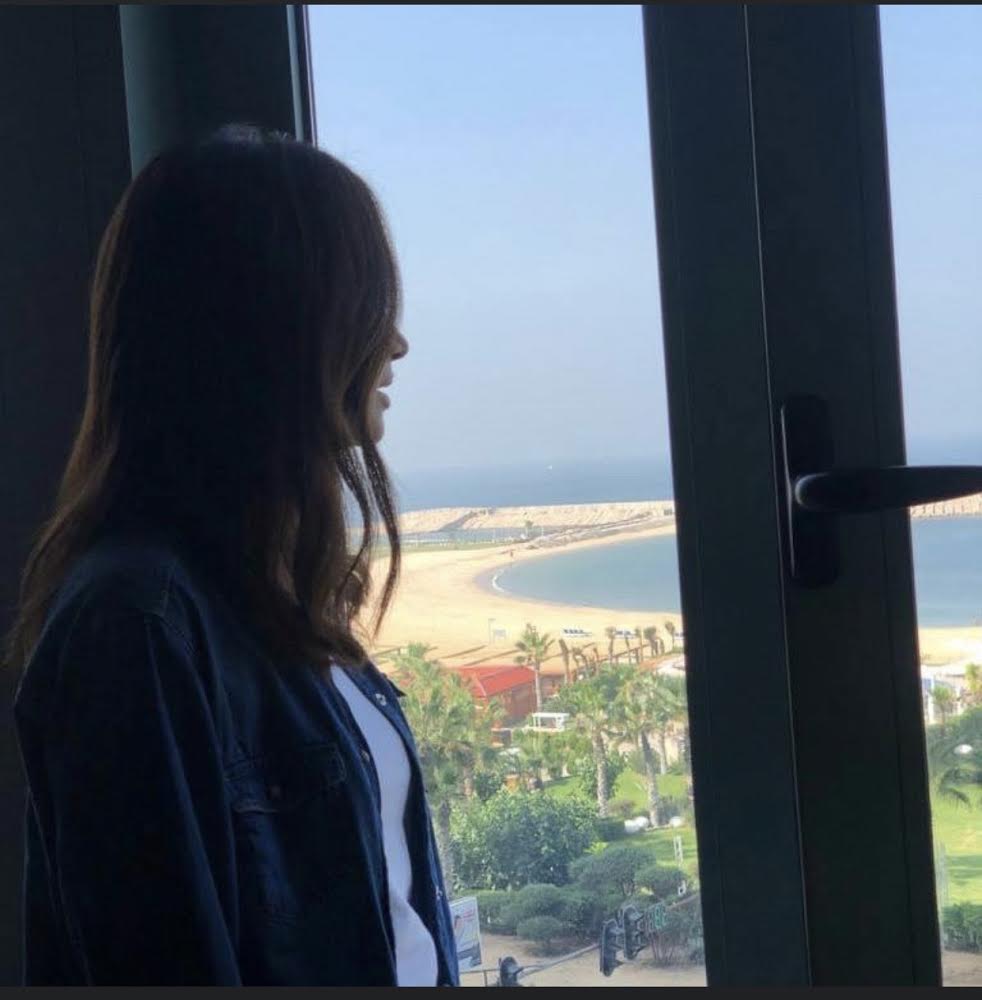Creative Writing Award Shows Enduring Interest in Arabic Literature

@MalakSaad76
A ceremony recognizing the best literary works of the year demonstrates a lasting interest in Arabic literature among the student body.
Three students were presented with the Madalyn Lamont Creative Writing Award, organized by the Department of English and Comparative Literature on March 13.
The event took place in the Tim Sullivan Lounge and housed an audience of the winners’ families and friends, accompanied by students and professors from various departments.
“It’s always inspiring to see creative people presenting their work with passion and dedication,” said Hazem El Essawy, a member of the audience.
The first prize went to Ramy Amin, a comparative literature graduate student.
The second was given to Mourad Dabbour, an architecture senior, and the third to Mahmoud Basha, an environmental engineering master’s student.
Dabbour described writing as an experience he truly enjoys and one that has been “running in his blood” since he was a child.
His story is about a boy who pursues a girl only to discover that he never truly had any genuine feelings for her.
“I’ve been wanting to write even before I started learning how to write stories properly. I would tell my mom stories and she would write them for me,” he said.
Named in honor of the late Madalyn Lamont, an instructor in the writing program, the award was created in 1986 to commemorate and cater to the diversity of writing talents among students on campus.
“I felt quite appreciated when I got the prize, that someone recognizes my work. It gave me the confidence that maybe I can become a writer and assured me that I have potential,” Dabbou told The Caravan.
The competition alternates between English and Arabic submissions on an annual basis.
“I find that, generally, Arabic has been declining among the young generations. We only know of and speak colloquial Arabic but to write, with such richness in the language, gives a whole third dimension to the plot, which I truly felt when I heard the excerpts being read out,” said Music Performance Junior Nathalie Bichara.
“I was astonished at the complexity and the talent of these young men who got to read out excerpts from their short stories,” she added.
Fatma El Boudi, owner of Al Ain Publishing House, gave a keynote speech titled “The Cultural Scene and Publishing Now,” before handing out the awards.
El Boudi announced that her participation was in support of young writers. She has been the owner of Al Ain Publishing House since 2000 after a shift from a career in medicine.
“Dar El Ain has always been supporting short-stories and publishing them, we don’t do things according to the public as much as we do it if I’m convinced of them,” she explained.
El Boudi then discussed the challenges Al Ain faces, including online piracy of books.
“I think I learned a lot from Fatma El Boudi as she talked about the publishing scene in Egypt, the challenges she faces by writers and publishers and how she supports young writers,” said El Essawy.
El-Boudi believes that restoring the culture of print books is a step towards protecting the rights of the writer.
Al Ain is even starting an online platform from which individuals can legally buy PDF versions of books.
However, El Essawy believes nothing will change people’s minds as print books are becoming more expensive and are not easy to find.




